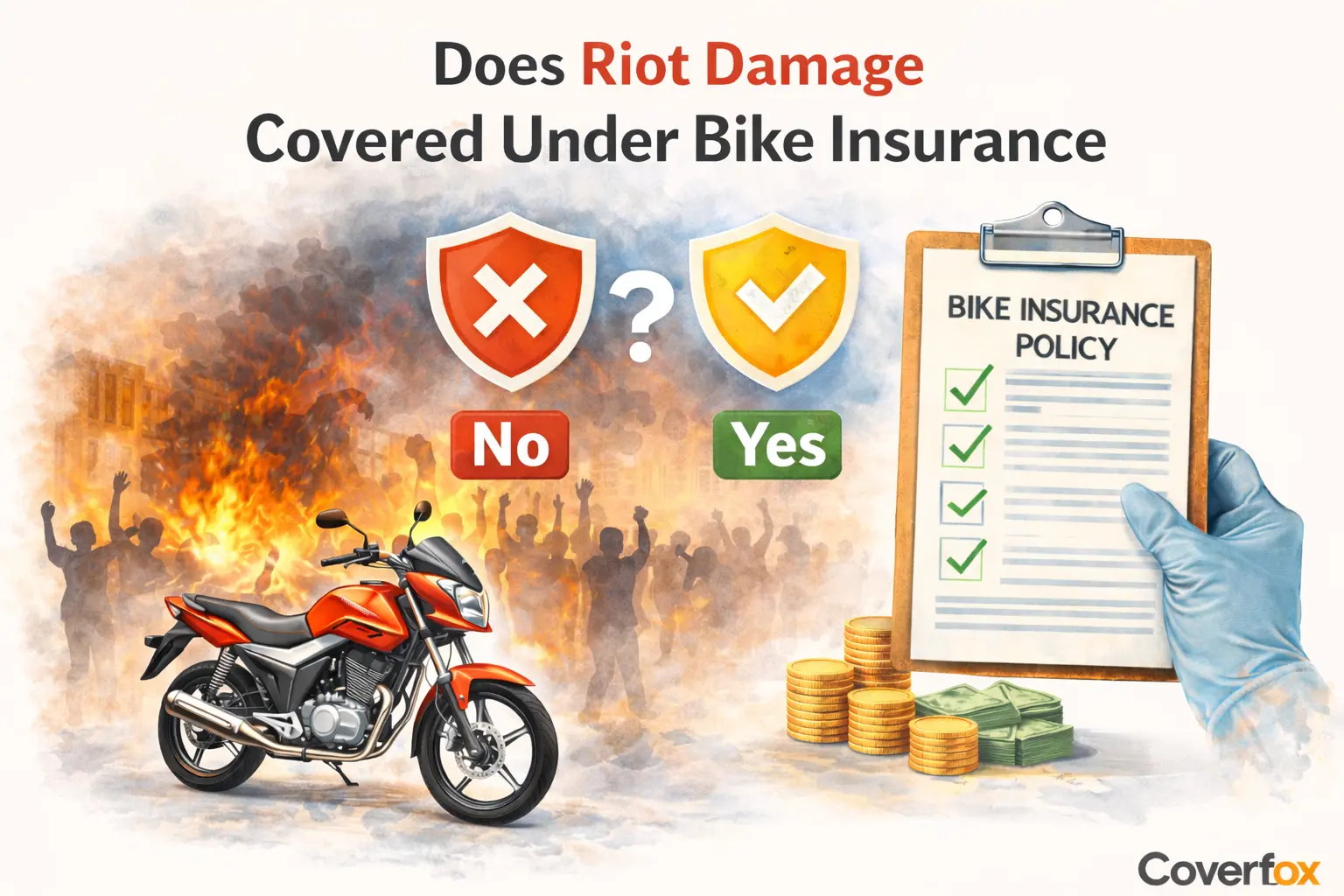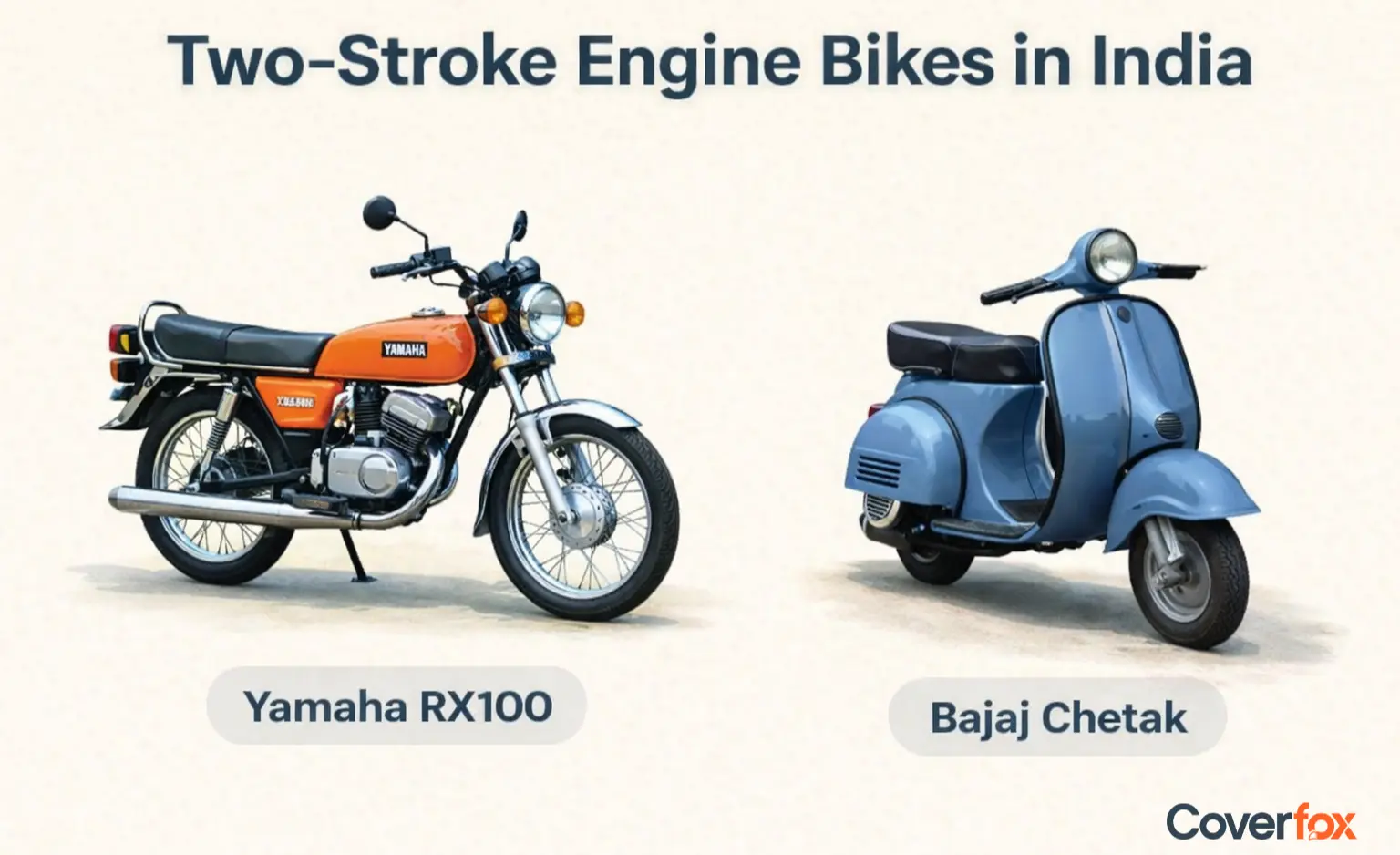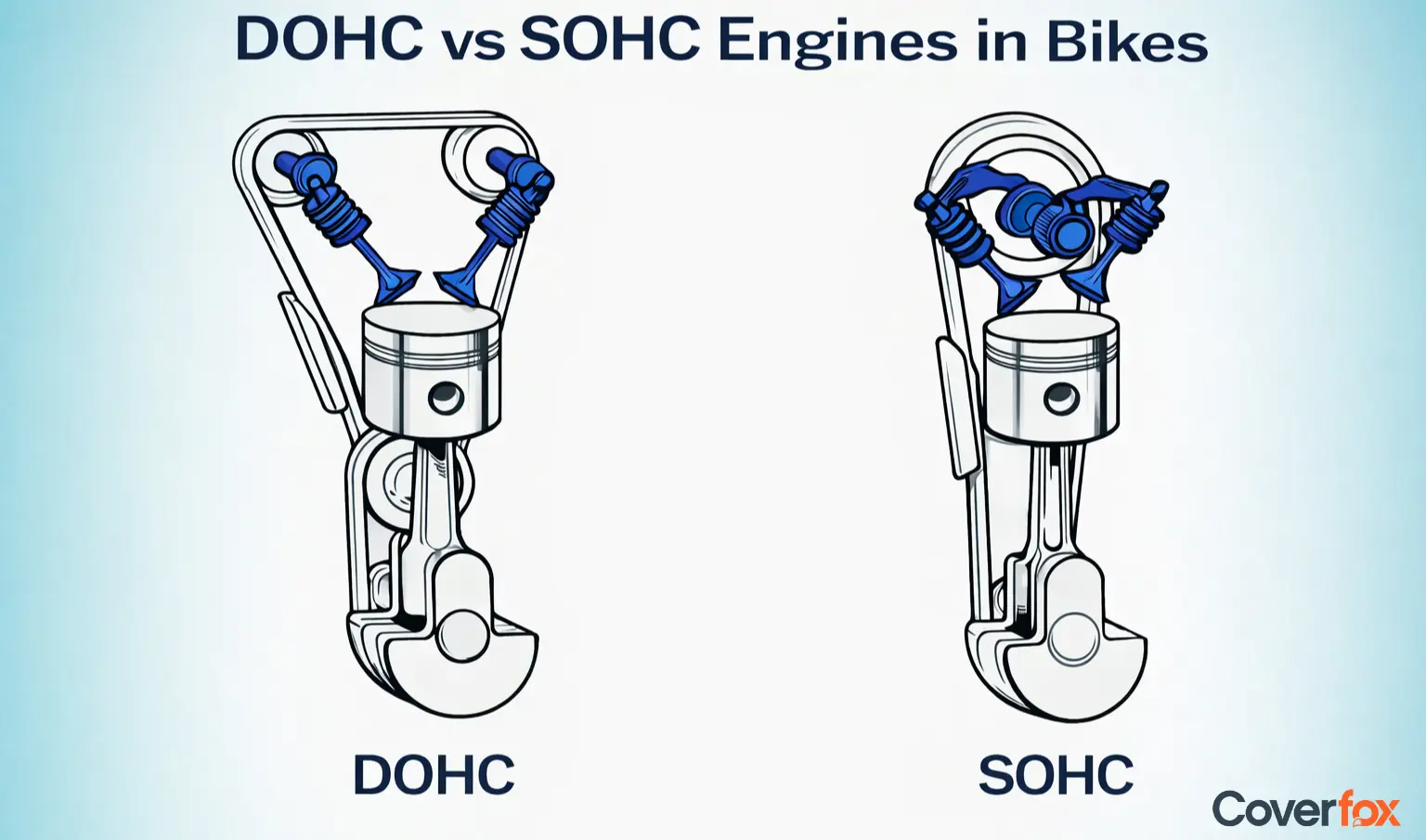Considering the plethora of two wheeler options available in the market, choosing the best one as per your budget and requirements can be challenging. The first question that may come across your mind would be whether to choose an electric bike or a fuel bike.

Electric bikes are gaining popularity as they have the ability to reduce pollution caused by fuel bikes. Additionally, e-bikes are low on maintenance and easy to use. Moreover, the constant surge in fuel prices has also led to an increase in demand for e-bikes. However, irrespective of the bike you choose, it is necessary that you purchase bike insurance as it is mandatory to do as per the law.
Confused between electric bikes and fuel bikes? Read on to know the factors that can help you make the right choice.
What is an electric bike?
An electric bike is powered by an electric battery rather than traditional fossil fuels like petrol or diesel. They run on re ions, making them an eco-friendly and cost-efficient alternative to conventional bikes. Instead of refuelling, it requires recharging, and the best part is you can set up a charging station at your home. With the rising fuel costs and people switching to more sustainable options, e-bikes have been gaining popularity in India. They are best used for city commuting and short-distance rides.
What is a Fuel Bike?
A fuel bike is a traditional bike which is powered by a fuel engine using traditional fossil fuels like petrol and diesel. These bikes take the majority share of the total two-wheelers market in the country. They are reliable, easy to refuel and a good option for long-distance rides. In a fuel bike, petrol or diesel is combusted to generate power. They have remained relevant for decades – but, as fossil fuels are a non-renewable source of energy, e-bikes have started to take over. Also, it emits harmful emissions like carbon monoxide, posing a threat to the enviornment and global warming.
| Parameter | Fuel Bike | Electric Bike (E-Bike) |
|---|---|---|
| Fuel Type | Petrol/Diesel | Battery-powered (Electric) |
| Running Cost | High (₹2–4/km) | Low (₹0.25–0.50/km) |
| Maintenance | Frequent oil changes, engine care | Minimal – mainly battery & brakes |
| Top Speed | Higher (100+ km/hr) | Moderate (60–100 km/hr) |
| Range per Refill/Charge | 300–500 km (full tank) | 80–150 km (full charge) |
| Emissions | High CO₂ and pollutants | Zero tailpipe emissions |
| Refuelling/Charging Time | 5 mins at a petrol pump | 4–6 hours (standard charge) |
| Initial Cost | Generally lower | Generally higher |
| Government Subsidy | Not available | Available under FAME II & state schemes |
| Noise & Vibration | Noticeable engine noise | Near-silent and smooth |
| Eco-Friendliness | Less | More |
Pros and Cons of Fuel Bike
Given below are the pros and cons of fuel bikes:
| Pros | Cons |
|---|---|
| Higher top speed and power | High running and fuel costs |
| Wider availability and model options | Regular maintenance needed (engine, oil) |
| Longer range on a full tank | Emits pollutants and contributes to noise |
| Quick refuelling | Heavier environmental impact |
| Ideal for long-distance travel | Rising fuel prices increase expenses |
Pros and Cons of Electric Bikes
Given below are the pros and cons of electric bikes:
| Pros | Cons |
|---|---|
| Low running and maintenance costs | Limited range per charge |
| Eco-friendly with zero tailpipe emissions | Long charging time (3–6 hours) |
| Smooth, quiet, and vibration-free ride | Charging infrastructure is still growing |
| Eligible for government subsidies | Higher upfront cost in some cases |
| Ideal for city commuting | Battery life degrades over time |
Who Should Buy a Fuel Bike?
Fuel bikes have ruled the market since decades. People who would probably prefer a fuel bike are:
- Long journey riders
- Riders who want multiple model options
- Spirited riders
- Budget-conscious riders
- Riders in places with a lack of infrastructure for electric bike charging
Who Should Buy an Electric Bike?
E-bikes are getting popular day by day. People who would probably prefer an e-bike are:
- Riders who want sustainability
- Riders who want quiet rides
- Riders who want to save money in the long run
- City commuters
- Riders who have access to proper recharging infrastructure
Does an Electric Bike Need Two Wheeler Insurance?
As per the law under the Motor Vehicle Act 1988, you need a third-party insurance policy to be able to ride on public roads in India. This goes for e-bikes as well. In India, electric bikes (e-bikes) with a motor capacity exceeding 250W or a top speed above 25 kmph require insurance coverage. You should also opt for comprehensive bike insurance to further enhance your financial security. At Coverfox, we provide the best bike insurance quotes for e-bikes. Make sure you check it out.
Conclusion
When choosing between a fuel bike and electric bike, you can keep in mind the above parameters to make the best choice. However, irrespective of which bike you choose, never miss out on buying bike insurance as it is mandatory to do so and can help you cater to all your financial liabilities arising out of damages caused to your bike as well as that of the others.
Also Read
Frequently Asked Questions
Which is better an electric bike or a fuel bike?
An electric bike is a more sustainable option than a fuel bike; however, both bikes have their pros and cons.
Is an electric bike good for daily use?
Yes, e-bikes are excellent for short and daily commutes.
Is it worth buying an e-bike?
Yes, if you see in the long run, e-bikes are cheaper than fuel bikes in terms of savings on fuel.
Which EV bike is under 1 lakh?
Avon E Scoot, TVS iQube, Ola S1 X, Oben Rorr EZ, Ola Roadster X.
 in Bikes.webp)
 in Bikes.webp)


.webp)
